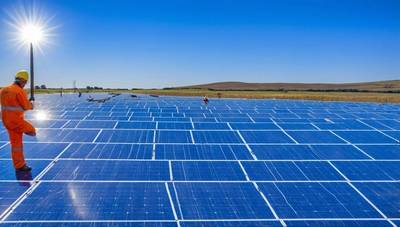UK bans state investments in solar panels that are linked to forced labor
The energy department announced on Wednesday that Britain will avoid using solar panels associated with suspected forced labor in China by its new state-owned company, Great British Energy.
Over 80% of solar panels are produced in China. According to a study by the UK's Sheffield Hallam University, forced labour is used in the production of polysilicon - one of the panel's core components - among Uyghurs.
China denies all abuses, and in February a spokesperson for the foreign ministry said that accusations of forced labor were among "lies of this century". The Chinese Embassy in London failed to respond Wednesday to a comment request.
Britain's goal is to decarbonise the electricity sector by 2030. This will require an enormous increase in renewable energy, including a tripling of solar capacity.
GB Energy launched in July to boost investment in renewables in order to meet these goals.
The legislation that is currently being debated in parliament will include the promise to eliminate forced labour.
Michael Shanks, junior energy minister, said in a press release that Great British Energy would be a leader in the industry in developing supply chain free of forced labor.
Before the law can become law, both houses of Parliament must agree on the final text of legislation.
Solar Energy UK, a trade association, said that the change would not affect Britain's ability meet its 2030 net-zero targets.
The Uyghurs are a predominantly Muslim ethnic group. Imports from China have been banned to the U.S. because of alleged abuses committed by the Uyghurs. $1 = 0.7509 pounds (Reporting and editing by Alison Williams, Aidan Lewis and Alison Williams)
(source: Reuters)









